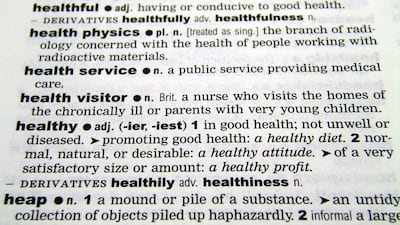Rigorous advocacy, collaboration, and achievement of a strong, united voice on complex issues in a dynamic regulatory environment are critical to the self-care industry’s success in 2024, associations say.
While committed to championing their members’ interests in ongoing policy debates and supporting compliance with new regulations, trade groups also are watching for 2024 election results and institutional leadership changes that could bear on government agendas and regulatory implantation in key areas.
HBW Insight reached out to industry associations in the US and Europe for their outlook on the new year. Read below their responses to our prompt:
“2024 will the year of…”

Judy Stenmark
Director General
Global Self-Care Federation
Two themes that are central to the consumer health industry are environmental sustainability and driving efforts to achieve Universal Health Coverage (UHC). These aspects are crucial to reconfiguring how we see self-care.
There is an inextricable link between climate change and the health of populations, and the scale and speed of change that we need is only possible if all relevant actors come together and focus on efficacy and long-term impact.
In 2024, we will be building on the critical action that we achieved across our two environmental priority areas: plastics and packaging and CO2 footprint. We will engage with stakeholders around blister packs and sustainable packaging for non-prescription medicines and food supplements and to further research recycle-ready packaging. We will also build on our supplier guidance for supply chain and greenhouse gas emissions.
Over the next year, we will continue to advocate for a WHO Resolution on Self-Care that fully embeds self-care into the international framework for UHC by 2025. A resolution on self-care would provide a framework for its integration into national health systems, promote awareness and political commitment, and mobilize resources for evidence-based interventions.
We need to strengthen overall health systems. A sharp focus on UHC across the international healthcare community clearly enables this.
Read more about the GSCF’s campaign for a WHO Resolution on Self-Care, and listen to this podcast with the Federation’s director of regulatory and scientific affairs, Padmaja Kamath, about the organization’s sustainability work.

Jurate Švarcaite
Director General
Association of the European Self-Care Industry
... celebration.
2024 will be a year of celebration for our industry and self-care. AESGP will be 60 years old. Over the past six decades, AESGP has grown alongside the industry it represents. It has played a key role in establishing appropriate European regulatory frameworks for non-prescription medicines, food supplements and self-care medical devices, as well as promoting self-care.
To mark this anniversary, the 60th AESGP Annual Meeting will bring together experts, policymakers, stakeholders and AESGP members to look back on the organization's milestones, but also to reflect on the future of self-care, considering new trends and perspectives affecting the industry and beyond.
The European elections will take place around the same time. These elections will see a new composition of the European Parliament, a significant change among current European Commissioners, the possibility of a new president of the European Commission and, no doubt, a new president of the European Council. This political transition will inevitably lead to a reorientation of political priorities and a change of agenda.
2024 promises to be an interesting year.
Read our coverage of the 59th AESGP Annual Meeting, at which the European Commission revealed OTC antimicrobials might become Rx-only as part of the region’s pharma legislative overhaul, rejected longer exclusivity periods for EU Rx-to-OTC switches and laid down the ‘zero pollution’ gauntlet to the region’s consumer health industry.

Hubertus Cranz
Director General
German Medicines Manufacturers´ Association (BAH)
… important changes in the legislative environment for human medicinal products in the European Union.
Still, before the elections to the new European Parliament in June 2024 we have unfortunately to assume that the revised directive on urban waste water treatment will be adopted. It will have huge cost implications for manufacturers. This contrasts with the objective to strengthen the pharma industry in Europe.
In the same sense some proposals for the revision of the general EU pharma legislation should not be pursued. Bringing more medicines under prescription status or even eliminating categories of medicines such as homeopathic medicinal products will only create additional costs for the health care systems without any benefit for the citizens.
It is good to see EU and national pharma strategies with an overall right mindset now in place. What we urgently need in 2024 is the willingness to put such strategies into meaningful actions. There are many opportunities to reduce administrative burdens which would strengthen the resilience of the supply chain. This also applies to medical devices which suffer from unbalanced EU regulation. Amendments are urgently needed in the new year.
Read responses from national industry associations, including BAH, to the European Commission’s proposal to reverse-switch OTC antimicrobials.

Michelle Riddalls
CEO
PAGB
… reclassification.
PAGB, the consumer healthcare association, is working with the UK MHRA and the UK Department of Health and Social Care and pharmacy organisations, through the relaunch of the Reclassification Alliance, to widen access to self-care medicines.
Historically the reclassification of prescription medicines to make them available over the counter (OTC) has delivered huge benefits for patients, pharmacy, and the healthcare system. The first UK switches of loperamide and ibuprofen over 40 years ago paved the way for more medicines to be reclassified to OTC and transformed the ability for patients to take control of their health and manage their self-treatable conditions.
The new Reclassification Alliance is well placed to help identify further categories or conditions where there are products that might be considered suitable for switching. New switches will enable faster and more convenient access to effective medicines without a GP prescription. This is an exciting year for the consumer healthcare industry and we’re looking forward to playing our part.
Read more on the benefits of Rx-to-OTC switch according to PAGB.

Luc Besançon
Délégué Général
NèreS
… a new way of looking at our products and sector.
At European level, the Pharmaceutical Strategy will reflect and formalize the pressing issues for policymakers and the public, such as safety, shortages, as well as environmental considerations. This new framework will set the rules for the decades to come for OTC medicines. It also confirms that the benefits as well as risks are no longer considered only from an individual perspective (eg, for a given patient) but also from a collective perspective (including the societal and environmental impacts).
Similar concerns will also drive the French agenda for all selfcare products through sector-specific decisions but also through the general framework applicable also to self-care products. Increasingly, self-care products will no longer be regulated only by sectorial regulation but also by general regulation, pushing our sector to consider a wider range of regulation as well as to interact with additional (and non-health/food related) authorities, such as environmental authorities.
With success comes responsible behaviors: as the market of food supplements grows, so do the interest and scrutiny of authorities, requiring responsible conducts from all players to remain credible stakeholders (such as in 2023 when the authorities allowed use of the term ‘probiotics’ to identify a category of food supplements based on sectorial guidelines). With the change of competent authority regulating food supplements effective as of 2023, the Ministry of Agriculture has planned to revisit the national framework for food supplements.
Environmental and safety considerations are behind the French pilot project of ePILs (electronic Patient Information Leaflets), in which some OTC medicines will be able to take part and which will be launched in 2024.
Finally, as France experiences more severe GP shortages, one can expect greater self-care practices through community pharmacies, facilitated by the deployment of new services around self-care (eg, point-of-care testing for sore throat and cystitis). More than ever, it will be essential to make visible self-care products’ value to the health continuum, but also of the self-care industry as a whole to the national economy.
Read more about NèreS’ efforts to promote self-care in France and its involvement in the country’s pathbreaking liberalization of its probiotic food supplements market.

Christina Nageler
Managing Director
IGEPHA
… enhanced digital health care engagement.
That engagement will be driven by the expansion of online pharmacies and potential new services from e-commerce leaders.Key factors include increased self-medication trends and innovative product launches. Additionally, the presence of major global players and the reinforcement of local manufacturers in Europe are set to further stimulate market growth. Meanwhile, the evolving regulatory landscape will present new challenges for OTC products. We will also encounter numerous environmental sustainability initiatives as well. A comprehensive strategy for the sustainable lifecycle management of self-care products and their components is essential, ensuring both environmental responsibility and uninterrupted access to these products. We at IGEPHA are poised to navigate these changes successfully.
Read more about the EU’s changing regulatory landscape for OTC medicines.

Martin Bangerter
Managing Director
ASSGP
For the ASSGP and its members, 2024 will be a year in which we want to take self-medication and its integration into the Swiss healthcare system a decisive step forward. Our study planned for 2024 to analyse the economic and social impact and potential of self-medication in Switzerland will provide an important basis for this. We are also pleased that the Swiss government has announced that it will resume negotiations on bilateral relations with the EU in 2024. The fact that, as announced, the relevant points are to be negotiated by the end of 2024 and that sustainable, harmonized relations between the EU and Switzerland will soon be re-established is of central importance for our industry.
Read more about regulatory changes in Switzerland.

David Skinner
President
International Self-Care Foundation
… mental wellbeing and self-care.
In today's hectic and fast-paced world, self-care is becoming increasingly important, particularly when it comes to mental health. The increase in mental health concerns following the impacts of COVID-19 are undeniable, and it would appear that even though we are somewhat looking in the rear-view mirror at the pandemic, the fallout from this crisis has not diminished at all. This makes mental wellbeing a priority for individuals and policymakers alike in 2024. It cannot be delayed or ignored.
Mental wellbeing relies on a number of related emotional aspects such as life satisfaction, optimism, self-esteem, mastery and feeling in control, having a purpose in life, and a sense of belonging and support. The World Health Organization defines mental health as a state of wellbeing in which every individual realizes his or her own potential, can cope with the normal stresses of life, can work productively and fruitfully, and is able to make a contribution to her or his community. The positive dimension of mental health is stressed in WHO’s definition of health as contained in its constitution: ‘Health is a state of complete physical, mental and social wellbeing and not merely the absence of disease or infirmity.’
What can be done?
The International Self-Care Foundation promotes the Seven Pillars of Self-care as a way to holistically maintain one's physical, emotional, and social well-being. While mental health is the second Pillar, it doesn’t really stand alone. Paying attention to all the aspects of self-care is essential to avoiding mental health issues and preserving one's general wellbeing. This is because a holistic approach to self-managing health works to lower stress, elevate mood, strengthen resilience, and improve general quality of life. Just by making this conscious effort, people will have the best chance to overcome physical obstacles and keep a good outlook on life.
Beyond the self-care commitments necessary for individual mental and emotional wellbeing, governments, insurers, and community institutions need to step up and make self-care a part of their overall efforts to improve this aspect of healthcare. Integrating self-care into health policy at all levels will support individuals and lead to much needed improvements.
In its pursuit of self-care for all by 2030, the ISF will focus its efforts in 2024 on this important pillar of self-care and encourages everyone with an interest in mental health to add their voice to communicating the value of self-care.
Read about how the ISF is working with GSCF and other stakeholders to promote self-care internationally.

Jeff Ventura
Vice President, Communications
Council for Responsible Nutrition
… collaboration.
In an industry the size of ours, with so many stakeholders, it’s not always possible to gain consensus on an issue. But it’s worth trying. Our CEO recently published an essay in which he pointed out that part of the art of association work is knowing what tact and tone to take when advocating for a particular position. Sometimes, for example, thoughtful, well-laid-out criticism of a proposed regulatory action is preferred over being generally confrontational. At the risk of sounding cliché: be part of the solution, not the problem.
In 2023, CRN took this approach, for example, when we offered sound counterpoints to congressional research data with regard to the cost of including dietary supplements in FSA/HAS programs [pre-tax accounts for healthcare related expenses], or when we pointed out flaws in guidance issued by the FTC. The best advocacy is when your criticism is constructive and ultimately leads to a collaborative posture, from which you are recognized as responsible, reasonable and ready to broker a solution.
In 2024, as DSHEA turns 30, collaboration and consensus – rather than conflict –will define success as we look to improve the regulation of our industry.
Read about CRN’s 2023 Consumer Survey on Dietary Supplements, which it says confirms the mainstream status of supplements and their importance in the lives of most US consumers.

Daniel Fabricant
President and CEO
Natural Products Association
In order for the natural products industry to continue on the success the industry has experienced over nearly 30 years since DSHEA was enacted, in 2024, it will require engagement unlike any no other from organizations who’ve had more of a laissez-faire attitude toward trade associations and interaction with the government.
NPA has an almost 90-year history of action-speaking advocacy into results. When benchmarked to industries of standard economic scale, our industry lags in association membership (as a percentage of industry participation), lobbying, and campaign contributions. One of the industries we need to catch up on is the cruise ship industry. Their engagement is more substantial than ours. Is that the message we want to send to those who rely on the industry?
In times like these, I cannot stress the need for effective communication between the Natural Products industry and policymakers. With some 4,000-plus associations in D.C., policymakers often need a deeper understanding of practices and the challenges faced by any given industry. Bridging this gap will take engagement, unlike the current status quo. There must be an emphasis on active participation through organizations like NPA to convey concerns and set the record straight on misconceptions. More importantly, for us to have real staying power, none of the marketing in the world can rival the government's ability to change a vibrant marketplace to one filled with uncertainty in an instant. Real industry influence is the ability to predict and stabilize to chart new courses. While market forces are cyclical, some smarter than predictable, forces of influence on policy aren't. Not having a deep bench of advocates for natural products in the legislative branch across party lines to value the merits of the industry and ensure that policies are conducive to the industry's growth and sustainability will not result in a future course that exceeds our present reality.
Read about NPA’s lawsuit against the New York attorney general over the state’s new law age-restricting access to certain OTC drugs and dietary supplements.

Scott Melville
President and CEO
CHPA
... navigating an inconsistent and challenging-to-predict regulatory environment, with the consumer healthcare industry facing regulatory headwinds that demand strategic solutions.
FDA’s recent actions that take aim at certain ingredients, particularly on efficacy grounds, is a significant development that is impacting markets and consumer trust. In addition to the reorganization of offices within FDA, we must also consider the impact of leadership transitions. In the states, the consumer healthcare industry continues to be challenged by a patchwork of inconsistent policies. We anticipate additional efforts to enact extended producer responsibility (EPR) initiatives in some states, and efforts to impose age restrictions on weight-loss supplements, in others. CHPA also remains concerned with any future state action to ban FDA-approved ingredients, such as TiO2. Although well intentioned, these legislative initiatives could create unintended consequences for millions of consumers.
Despite these regulatory and legislative challenges, the industry continues to experience growth and innovation and we hope to see the benefits of OTC monograph reform, enacted in 2020, now that FDA has built systems and hired staff necessary to implement the law. The role of self-care has never been more important and is broadening to many new categories, including at-home testing, OTC hearing aids, oral contraceptives, and emergency naloxone. CHPA will continue to advocate for public policies that help consumers realize the benefits of responsible self-care.
Read more about the impact of FDA’s overhaul of its OTC monograph program.





